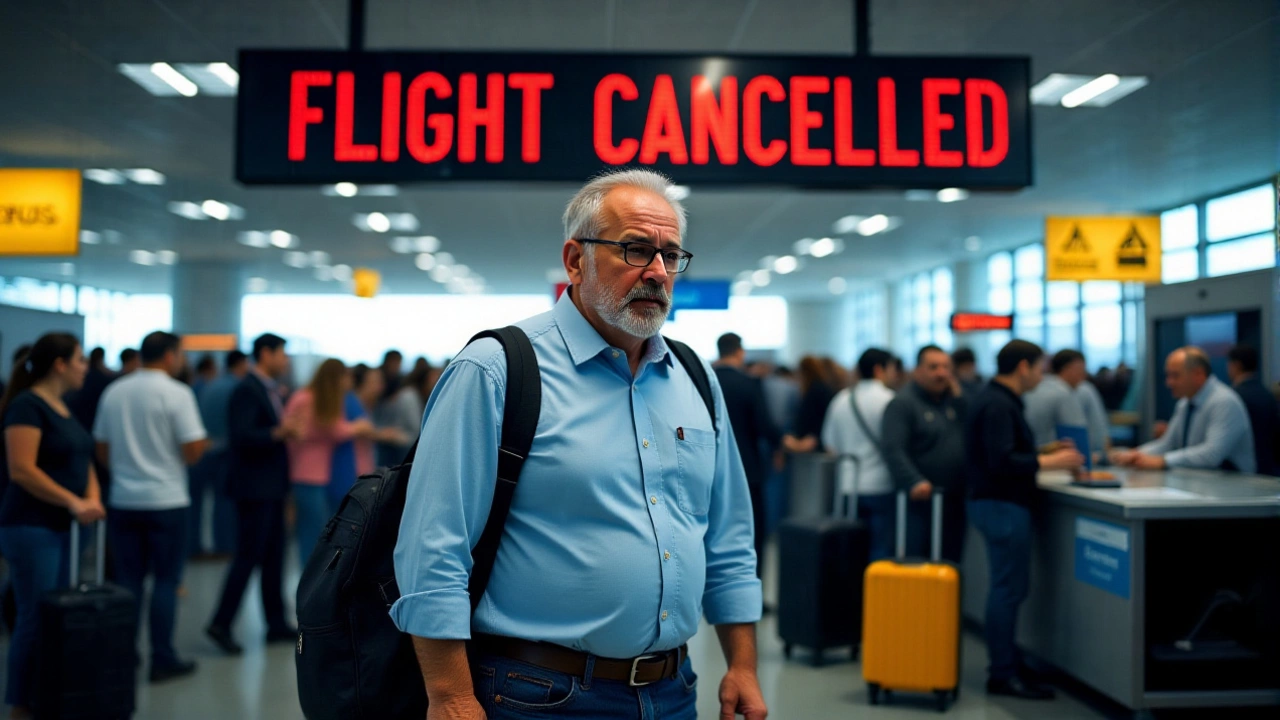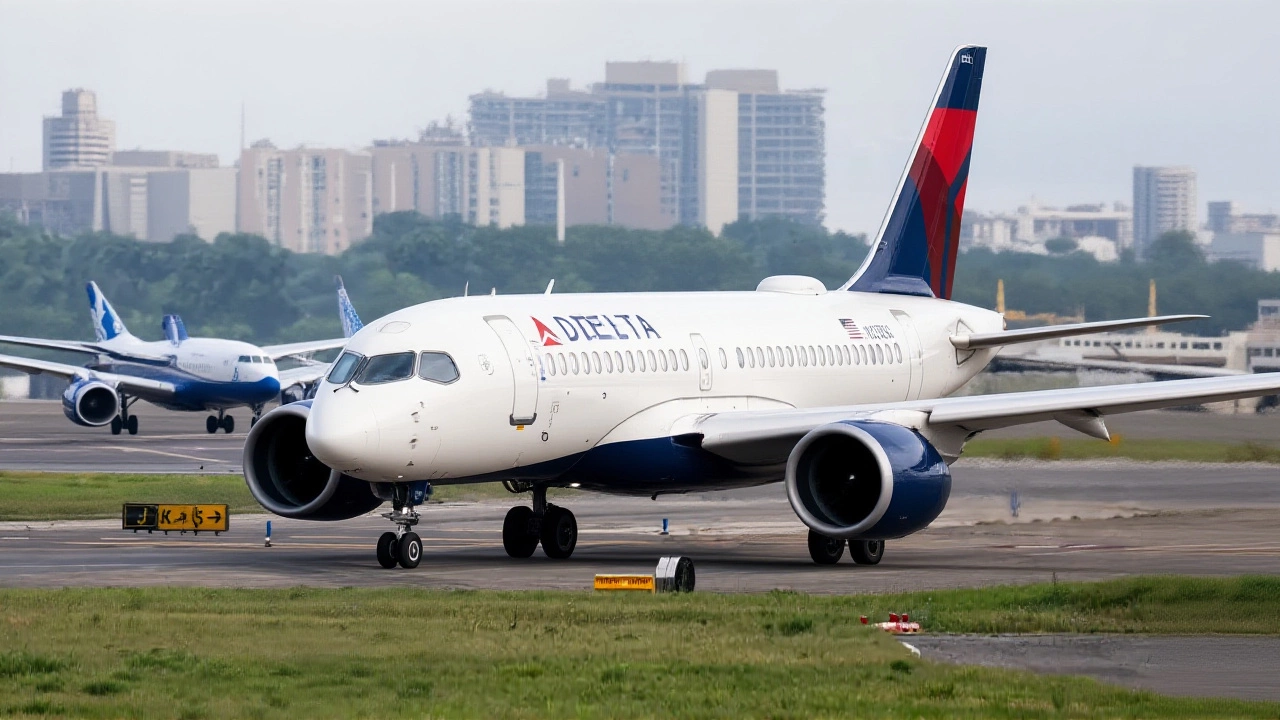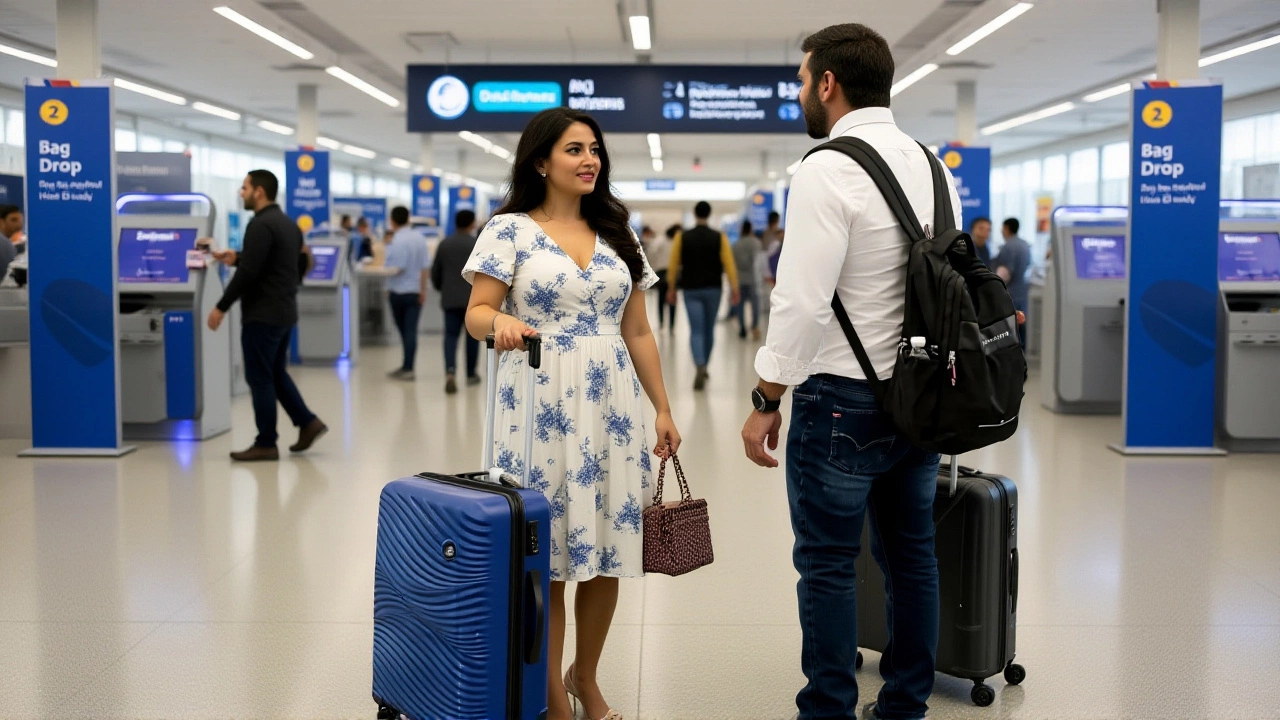Airline Cancellations Strand Thousands at Six U.S. Hubs

On October 20, 2025, a wave of flight cancellations and delays left thousands of passengers stuck at six of the nation’s busiest airports. The turmoil touched carriers ranging from Republic Airways Holdings Inc. to Envoy Air Inc., and even the heavyweight Delta Air Lines Inc.. By evening, the combined tally showed 173 canceled flights and 3,295 delayed departures, according to a Travel and Tour World briefing released at 8:02 PM UTC.
What Happened on October 20?
The day began with routine weather advisories across the southern Rockies, but by 9:52 AM ET Delta’s SkyWatch platform was flagging a cascade of disruptions. Within hours, the airline’s own advisory page — refreshed at 10:46 AM ET — listed categories ranging from hazardous‑item restrictions to travel waivers, but it still didn’t quantify the scale of the chaos. Meanwhile, flight‑tracking tool FlightAware, a real‑time data hub, reflected a sharp spike in cancellations that matched the numbers quoted by Travel and Tour World.
How the Disruptions Unfolded Across the Country
The fallout wasn’t confined to one region. In the East, Philadelphia International Airport (PHL) saw more than 40 departing flights scrubbed, leaving commuters on the tarmac for hours. Out west, Denver International Airport (DEN) reported a 20‑percent drop in on‑time performance, while Dallas/Fort Worth International (DFW) and George Bush Intercontinental (IAH) each logged over 30 delayed departures.
Orlando International (MCO) and San Francisco International (SFO) weren’t spared either; together they accounted for roughly a quarter of the total delays. The geographical spread – from the East Coast to the Mountain West and the Pacific – mirrors the airline network’s hub‑and‑spoke design, meaning any knot in the chain reverberates quickly.
Adding to the confusion, SkyWest Airlines, which operates under the United Express, American Eagle, and Delta Connection banners, was cited in a Simple Flying report as potentially impacted, though the airline’s official statement was still pending.
Airlines' Responses and Advisories
Delta’s rapid‑fire alerts suggested the carrier was monitoring the situation closely, but the lack of concrete numbers left passengers guessing. A spokesperson for Delta, speaking to a local reporter in Atlanta, said, “We’re working with airport authorities and the FAA to re‑schedule flights as quickly as possible. Safety remains our top priority.”
American Airlines Group, another major player in the list of affected carriers, posted a brief notice on its social channels: “We regret the inconvenience caused by today’s operational challenges and are actively re‑booking affected travelers.” No financial impact figures were disclosed, but industry analysts estimate that each canceled flight can cost an airline between $5,000 and $15,000 in lost revenue and ancillary fees.
Republic Airways and Endeavor Air, both regional subsidiaries, released terse updates confirming they were “coordinating with partner airlines to minimize passenger disruptions.” Their brevity underscores the pressure regional carriers face when a hub airline’s schedule unravels.

Possible Causes: Weather, Cybersecurity, and Government Shutdown
Three separate threads may explain the chaos. First, an unusual cold front slammed the Rockies on Tuesday, dumping snow and ice that forced ground crews to halt de‑icing operations at DEN and nearby fields. The National Weather Service logged 0.3‑inch ice accumulations, a figure high enough to trigger runway closures.
Second, a cyber‑security breach announced earlier that week involving Envoy Air Inc. raised eyebrows. The breach, reportedly linked to a broader attack on Qantas, Aeroflot, and Vietnam Airlines, compromised internal scheduling systems. While officials have not confirmed a direct link to today’s delays, an insider at a cyber‑risk consultancy warned, “If the airline’s crew‑management platform goes offline, you can expect ripple effects that look exactly like what we’re seeing now.”
Finally, the lingering fallout from the October 9 government shutdown continues to bite. AirHelp.com’s October 9 analysis showed that the shutdown forced dozens of air‑traffic controllers into an overtime crunch, creating a backlog that the system is still trying to flush out. An FAA spokesperson told reporters, “We’re operating with reduced staffing levels, which can lengthen turnaround times for flights across the network.”
What Travelers Can Do Now
If you’re caught in the mess, the best move is to stay glued to airline apps for real‑time rebooking options. Many carriers, including Delta and American, have waived change fees for affected passengers until the end of the month. Additionally, credit‑card travel protections may cover hotel stays or alternate transportation.
For those with flexible schedules, consider rerouting through less‑congested hubs such as Phoenix Sky Harbor (PHX) or Minneapolis‑Saint Paul (MSP), where runway availability remains relatively open. Finally, keep an eye on the FAA’s daily operational notices – they often flag airports that are expected to clear backlogs within a 24‑hour window.

Key Facts
- 173 flights canceled, 3,295 delayed as of 8:02 PM UTC, Oct 20 2025.
- Majorly impacted airports: PHL, DEN, DFW, IAH, MCO, SFO.
- Airlines involved: Republic Airways, Envoy Air, Endeavor Air, American Airlines, Alaska Air, Delta Air Lines.
- Potential causes: severe weather, cyber‑security breach, lingering effects of the Oct 9 government shutdown.
- Delta and American have waived change fees through the end of November.
Frequently Asked Questions
Why are so many flights canceled on a single day?
A mix of severe winter weather in the Rockies, a reported cyber‑security breach affecting scheduling software, and staffing gaps left over from the October 9 government shutdown created a perfect storm that forced airlines to cancel or delay hundreds of flights.
Which airports are most affected?
Philadelphia International Airport, Denver International Airport, Dallas/Fort Worth International, George Bush Intercontinental in Houston, Orlando International, and San Francisco International have reported the highest numbers of cancellations and delays.
Are airlines offering any compensation?
Delta and American Airlines have temporarily waived change fees and are providing rebooking assistance via their mobile apps. Some credit‑card travel protections may also cover additional costs like hotels or alternate transportation.
Is the cyber‑security breach linked to the flight disruptions?
While officials haven’t confirmed a direct link, experts say that if an airline’s crew‑management system is compromised, it can trigger massive scheduling errors, which look very similar to the delays currently observed.
What should stranded travelers do right now?
Check airline apps for the latest rebooking options, consider alternate hubs like Phoenix or Minneapolis, and stay tuned to FAA operational notices for updates on when specific airports are expected to resume normal traffic.
- Okt 20, 2025
- Aldo Prakasa
- 0 Komentar
- Lihat postingan
- permalink